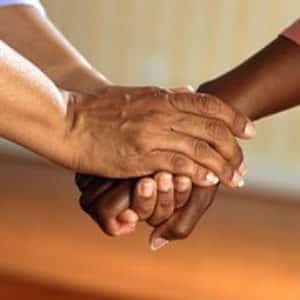
Despite the fact that many groups in the United States have spent decades trying to not only stop sexual assault but to also remove the stigmas associated with reporting an attack, an astonishing number of attacks go unreported. A new program, the You Have Options Program (YHOP) is encouraging law enforcement to join forces with them in an effort to make reporting a sexual assault less stressful for a victim.
It is widely believed that only 15% – 35% of all sexual assaults are reported to law enforcement in the United States. What many researchers have tried to figure out is why this type of violent crime is so underreported. What they have found is that:
Continue reading: Can I sue for being sexually abused?
The time after a sexual assault is a scary and confusing one. For some, the idea of being examined and having evidence taken from their body is simply too much. Additionally, many victims think that the police won’t believe them.
Nearly 66% of all victims know their attacker. This typically includes a partner they have been intimate with previously, a relative, friend, or acquaintance. Victims who know their attacker are often conflicted about accusing someone they and possibly their entire social circle, know well.
There is always a fear that those who love them most might not believe the victim or may treat them differently as a result – especially if the person who committed the assault was a mutual acquaintance.
Also see: Introducing The Sexual Assault Survivor Bill Of Rights
The shock of what happened can take over and victims may take days or even months to digest what happened to them. In some cases, victims may not even be sure that what took place was a sexual assault. By the time they take in what happened to them, they don’t report it because they believe all evidence has been destroyed and there will be no proof.
It is absolutely appalling how frequently victim blaming takes place in our country. It’s not difficult to understand why someone would be hesitant to report their assault when they read stories in the newspaper giving examples of the victim blaming others have endured. In a recent letter to a judge, one victim wrote “Even my own mother was victim-blaming. She told me that if I hadn’t been drunk, this wouldn’t have happened.”
In a highly publicized letter, written by a woman who was sexually assaulted behind a dumpster by a Stanford student while she was unconscious, she addressed how the defendants lawyers tried to make it seem that her actions that evening were what lead to her assault. During her trial, they asked questions like:
In addition to these questions, she was asked how she could prove that she didn’t like it if she couldn’t even remember being assaulted.
But as she so eloquently pointed out, regardless of her answers to these questions, none of these things were what made her attacker think that he had the right to sexually assault her and no one can give consent if they are not conscious to do so. She also stated:
“Alcohol is not an excuse. Everyone in this room has had a night where they have regretted drinking too much, or knows someone close to them who has had a night where they have regretted drinking too much. Regretting drinking is not the same as regretting sexual assault. We were both drunk, the difference is I did not take off your pants and underwear, touch you inappropriately, and run away. That’s the difference.”
Additionally, in response to the defendant saying that she “stupidly thought it was ok for her to do what everyone around her was doing” she said,
“Again, you were not wrong for drinking. Everyone around you was not sexually assaulting me.”
YHOP is hoping that they can educate both the public and law enforcement about why so many victims don’t file a report and to make victims feel that they have a safe environment in which they can make a report – an environment that is free of victim blaming.
YHOP provides three ways in which a victim can choose to make a report:
Victims are encouraged to speak with a law enforcement officer who is part of the YHOP program about each of these options and the statute of limitations in your area before making a choice or they can decide to have someone else make the report for them. Victims can remain anonymous if they choose to. The program also ensures that medical care and emotional support is a priority for all victims.



